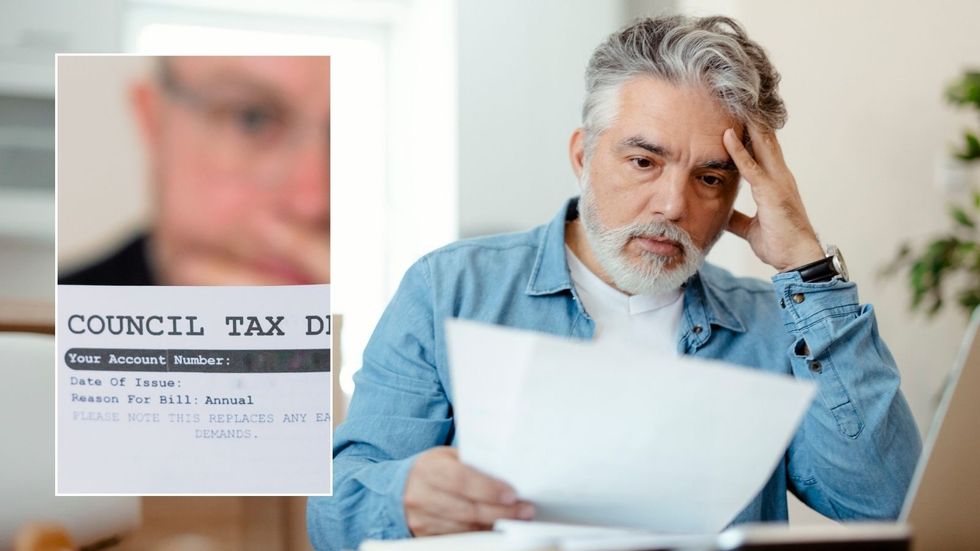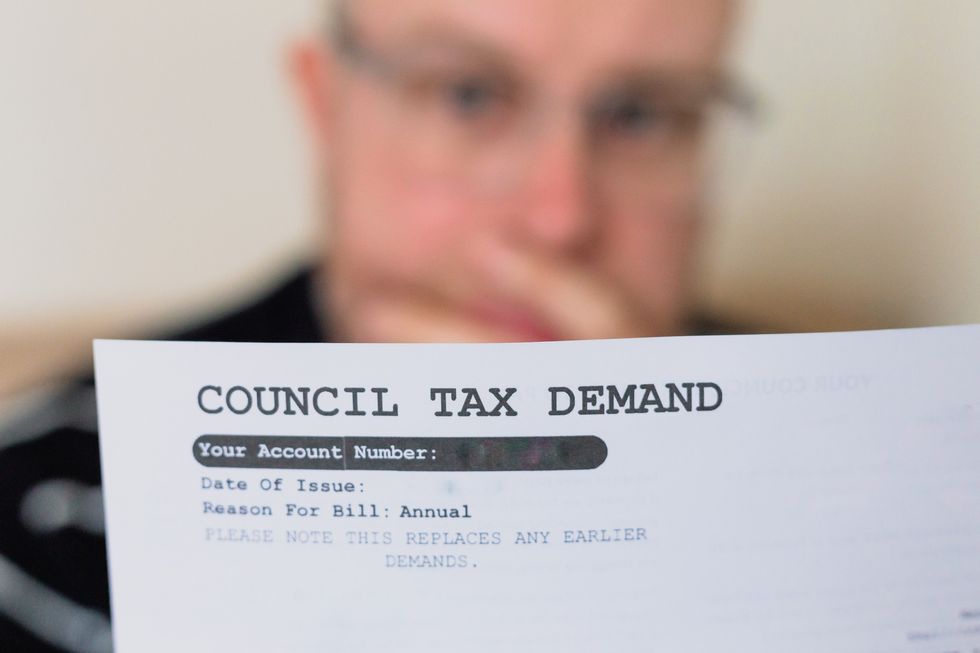Britons are warned that their council tax bills could rise by at least 10 per cent as local authorities call for double-digit increases to meet Labour’s targets.
These figures far exceed the normal 4.99 per cent cap, with local authorities grappling with mounting financial pressures.
Eight councils are seeking dramatic double-digit increases of up to 35.7 per cent.
Households in areas from Yorkshire to Birmingham, London and the South face the prospect of inflation-busting rises that could take effect from April 1, 2025.
The proposed increases come amid rising pressure, with housing high on Labour’s agenda and the party setting an ambitious target of 1.5 million new homes over the course of this Government.
Burnham-on-Sea and Highbridge have already approved a staggering 35.7 per cent rise, while The Royal Borough of Windsor and Maidenhead is proposing a 25 per cent increase.
Bradford Council is pursuing a potential 14.99 per cent increase. For struggling residents, the Council has promised additional support measures, though details will only be confirmed once the Government approves the final increase level.

In Burnham-on-Sea and Highbridge, councillors have approved a 35.7 per cent rise
GETTY
Birmingham is also plotting a 10 per cent hike amid ongoing service challenges.
Other authorities seeking double-digit rises include Hampshire pushing for a 15 per cent increase, Carmarthenshire and Cheshire East wanting 10 per cent, and Newham in London at 10 per cent.
The unprecedented wave of proposed increases comes as councils struggle to maintain essential services and manage mounting financial difficulties.
In Burnham-on-Sea and Highbridge, councillors have approved a 35.7 per cent rise, increasing Band D properties from £143.41 to £194.62 per year.
Do you have a money story you’d like to share? Get in touch by emailing [email protected].
The council cited Somerset Council’s financial emergency as forcing them to take on additional costs, including highway maintenance, CCTV, and public facilities.
Bradford Council is awaiting Government response on their proposed 14.99 per cent increase, with council leader Susan Hinchcliffe writing to request permission for various options between 9.99 per cent and 14.99 per cent.
Birmingham City Council’s proposed 10 per cent increase comes as the authority faces significant financial challenges and service disruptions.
Their financial crisis has deepened, with plans to cut £153million from its public services despite being embroiled in an ongoing ‘rat tax’ row as well as a bin crew strike that has affected local services a bin crew strike that has affected local services.
LATEST DEVELOPMENTS:
The authority’s financial situation has reached a critical point, with the council now officially classified as bankrupt.
The Royal Borough of Windsor and Maidenhead’s proposed 25 per cent rise would represent one of the largest increases among English councils.
The average council tax for a Band D property in England currently stands at £1,668 per year, approximately £169 monthly. A 25 per cent increase, as proposed in some areas, could add £42.25 to monthly bills, bringing the total to £211.25. Higher band properties would face even steeper increases under the proposed changes.
All councils seeking to exceed the standard 4.99 per cent cap must obtain special permission from the Ministry of Housing and Local Communities. This process typically requires a local referendum alongside the formal Government application.
Bradford Council leader Susan Hinchcliffe acknowledged the impact on residents, stating: “We realise that no one wants to see an increase in council tax when other bills are also rising. That’s why, if approved, we’d put in place a fund to support the least well-off.”

Last year town halls warned they may not meet the Government’s house-building targets unless council tax is raised by 10 per cent
GETTY
Last year town halls warned they may not meet the Government’s house-building targets unless council tax is raised by 10 per cent. Around 84 per cent of district councils can’t afford enough planning officers to support Labour’s pledge of 1.5 million new homes over the next five years, according to research.
The District Council Network (DCN) called on Chancellor Rachel Reeves to provide additional funding for planning departments in her upcoming Budget and allow council tax hikes of up to 10 per cent, double the current limit.
Richard Wright, DCN’s planning and growth spokesman, emphasized that underfunded planning departments risk subpar developments.
He said: “If the Government’s house-building revolution is to succeed, we need a step change in the recruitment and retention of planners.”
He warned that without proper resources, housing could be built in undesirable locations, undermining long-term success.